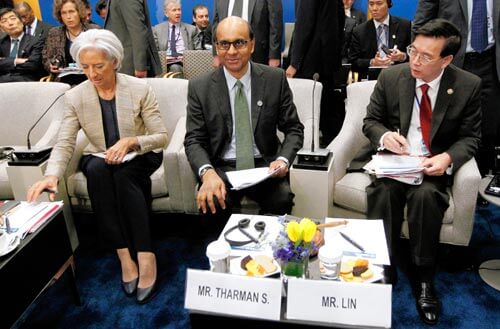CHICAGO–(BUSINESS WIRE)–May 2, 2013–Final approval of the International Monetary Fund’s (IMF) four-year Extended Fund Facility (EFF) for Jamaica represents a necessary step in the country’s efforts to stabilize domestic confidence, manage external vulnerabilities and increase the sustainability of public finances. However, Fitch Ratings believes that implementation risks are high given the program’s demanding targets and Jamaica’s erratic record in completing previous IMF programs.
We see the $932 million IMF facility, together with commitments from the World Bank and Inter-American Development Bank, as critical in reducing external pressures given Jamaica’s large current account deficit, sizeable external debt payments and low international reserves.
Jamaica’s credit profile has come under pressure in recent years as a result of weak growth, high debt, deteriorating fiscal accounts and increasing balance of payments pressures. Key external indicators have continued to worsen in 2013 and pressure on the currency has remained intense. Jamaica’s gross international reserves position declined from $2.9 billion at the end of 2010 to $2.0 billion at the end of 2012, and the balance has deteriorated further to $1.7 billion at the end of March.
Jamaica’s poor track record with respect to growth (average annual GDP contraction of 1 percent between 2008 and 2012) and heavy debt burden (estimated at 132 percent of GDP in fiscal 2012) highlight the challenges faced in increasing the sustainability of fiscal accounts. The government has taken steps recently to reduce fiscal imbalances through tax and spending measures in order to increase its primary surplus.
The National Debt Exchange (NDX) extended maturities and reduced coupon payments on domestic debt, thus reducing financing needs over the forecast period. Nevertheless, maintaining high primary surpluses and achieving stronger growth over the life of the program will be key in placing debt on a sustained downward trajectory.
Our recent upgrade of Jamaica to ‘CCC’ from ‘RD’ followed the completion of a distressed debt exchange in February. The current rating reflects our continued concerns regarding public debt sustainability and still high external financing needs. It incorporates the high degree of implementation risk that the government continues to face in following through on the IMF-monitored reform program, as well as uncertainty over Jamaica’s growth trajectory. The IMF has established demanding fiscal targets. The primary surplus is expected to average 7.5 percent of GDP over the life of the program, compared with an average of 4.3 percent over the last three years.
We believe that sustained easing of external financing constraints and a restoration of investor confidence are critical if Jamaica’s credit profile is to improve. In addition, better growth performance, fiscal consolidation and a declining debt trajectory will be important factors supporting improved credit quality.




























